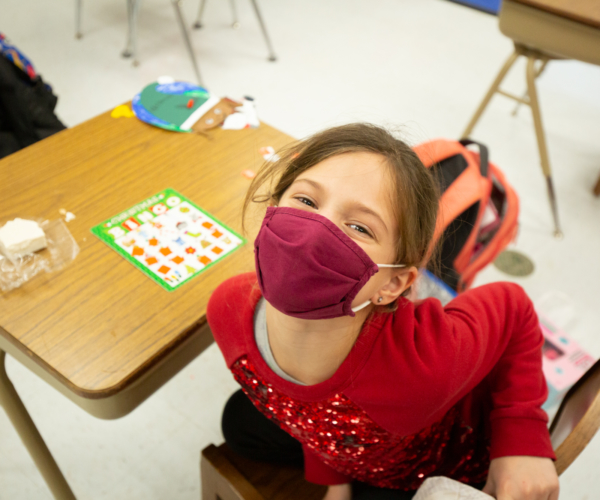As it did pre-COVID, the community has pitched to help the rural Turtle Lake School District in Wisconsin overcome the challenges of the pandemic.
For one, parents have kept sick students home, regard of whether they tested positive for COVID, to stymie transmission of the virus, says Kent Kindschy, superintendent of the one-building, pre-K through 12 district of 170 students.
And the local government of Barron County has donated ample masks, hand sanitizers and other PPEs. “It’s a small community school, so it’s good to see everyone stepping up during the pandemic,” Kindschy says.
More from DA: How 4 rural districts worked together to keep students in-person
But community support is nothing new in Turtle Lake. Prior to COVID, the district built a concession stand with just supplies and labor donated by the community, he says.
Turtle Lake has maintained in-person instruction for the entire 2020-21 school year, though educators closed schools for two days around Thanksgiving to test the district’s online learning capabilities. The district has spent some of its $80,000 in CARES Act funds on to replace water fountains with no-touch bottle filling stations.
Administrators also used CARES Act money on ed-tech, expanding Turtle Lake’s 1-to-1 program for grades 6-12 to elementary school students.
Teachers have been using laptop cameras to reach remote students but Kindschy intends to upgrades those to cameras that capture the whole room.
In the future, this will allows student at home due to illness or injuries to continue to participate in class, Kindschy says.
The district has also hired a part-time custodian to clean bathrooms three times day and he building’s ventilation system has been also been set to pump more fresh air inside. This lets more heat out, which had increased expenses during this winter’s string of sub-zero temperatures.
All the safety precautions have resulted in far fewer absences this school year, as students are also not spreading the flu or colds.
More from DA: How a rural, first-year superintendent confronts COVID
Funding, however, will remain challenge post-COVID, Kindschy says.
The community has many weekend homes owned by retirees as well as residents of the Minneapolis-St. Paul area, which is about an hour away. This drives up property values even though half the district’s student qualify for free and reduced-price lunch.
“Our biggest challenges always have been try to get equity in funding from state,” Kindschy says.









